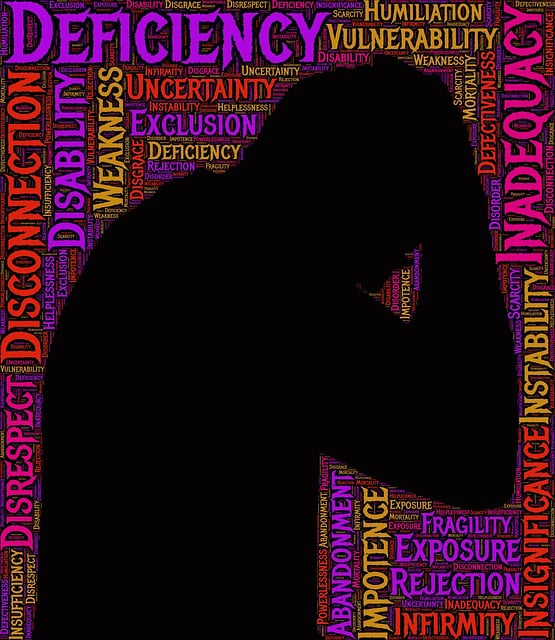Highlands Ranch Relationship Issues Therapy offers crisis intervention as a powerful tool for stabilizing individuals experiencing intense emotions. Through active listening, empathy, and practical advice in a non-judgmental environment, therapists help clients gain perspective and make better decisions, preventing escalation to severe issues like depression. The structured process involves building trust, identifying root causes, creating an action plan for emotional healing, providing immediate support, and offering subsequent care through individual therapy, group support, coaching programs, and risk management planning.
In moments of crisis, effective intervention can make a profound difference. This article explores crucial strategies for navigating relational challenges, drawing from the expertise of Highlands Ranch Relationship Issues Therapy. We’ll delve into the essential steps of intervention, from initial assessment to post-crisis support, offering guidance to foster healthier relationships. Discover practical techniques to prevent future crises and empower individuals and couples to overcome obstacles together.
- Understanding Crisis Intervention: A Cornerstone of Highlands Ranch Relationship Issues Therapy
- The Steps Involved in Effective Crisis Intervention Strategies
- Post-Crisis Support and Prevention Techniques for Healthy Relationships
Understanding Crisis Intervention: A Cornerstone of Highlands Ranch Relationship Issues Therapy

In the realm of Highlands Ranch Relationship Issues Therapy, crisis intervention stands as a cornerstone approach to addressing acute emotional distress. It involves immediate and focused strategies aimed at stabilizing individuals grappling with intense feelings like fear, anger, or despair. By leveraging crisis intervention techniques, therapists facilitate clients’ ability to navigate challenging situations, fostering resilience and coping mechanisms. This proactive approach is pivotal in preventing escalation towards more severe issues, such as depression, and promoting long-term mental well-being.
Effective crisis intervention involves a nuanced blend of active listening, empathy building strategies, and practical guidance. Therapists play a crucial role in creating a safe space for clients to express their emotions without judgment. Through this empathetic connection, individuals can gain perspective on their experiences, leading to better decision-making and improved relationships. Crisis intervention guidance thus becomes a powerful tool in the therapeutic arsenal, empowering folks to overcome immediate crises and cultivate healthier, more fulfilling lives.
The Steps Involved in Effective Crisis Intervention Strategies

Effective crisis intervention strategies involve a structured process that can help individuals navigate and overcome seemingly insurmountable challenges. The initial step is Highlands Ranch Relationship Issues Therapy, where trained professionals create a safe, non-judgmental space for clients to express their emotions and share their experiences. This crucial phase aims to establish trust and encourage open communication.
Once rapport is built, the intervention delves into identifying the root causes of the crisis, be it acute or chronic. By employing Emotional Well-being Promotion Techniques and Mental Wellness Journaling Exercise Guidance, individuals are empowered to process their feelings, gain insights, and develop coping mechanisms. The final stages focus on creating an action plan for sustained Emotional Healing Processes, ensuring that clients have the tools and resources needed to maintain mental wellness even after formal therapy sessions conclude.
Post-Crisis Support and Prevention Techniques for Healthy Relationships

After a crisis situation, providing immediate support and subsequent care is vital to help individuals process their experiences and build resilience. In Highlands Ranch Relationship Issues Therapy, one effective approach involves offering a safe and non-judgmental space for clients to express their feelings and concerns. This can be facilitated through individual therapy sessions or group support groups, where people can share their stories and learn from others who have gone through similar challenges.
Additionally, prevention techniques play a crucial role in fostering healthy relationships. Mental Wellness Coaching Programs Development can equip individuals with coping strategies and communication skills to navigate conflicts constructively. Risk Management Planning for Mental Health Professionals is essential to ensure they are prepared to handle crisis situations sensitively and ethically. By promoting open dialogue, empathy, and mental health awareness, these techniques contribute to building stronger connections and a supportive community environment in Highlands Ranch.
In conclusion, effective crisis intervention strategies, as highlighted in this article, including understanding the process, following structured steps, and providing post-crisis support, are essential components of Highlands Ranch Relationship Issues Therapy. By implementing these techniques, therapists can help individuals navigate challenging situations, foster resilience, and promote healthier relationships. Crisis intervention isn’t just a tool; it’s a lifeline that offers immediate assistance and long-lasting benefits for those facing relationship crises.














